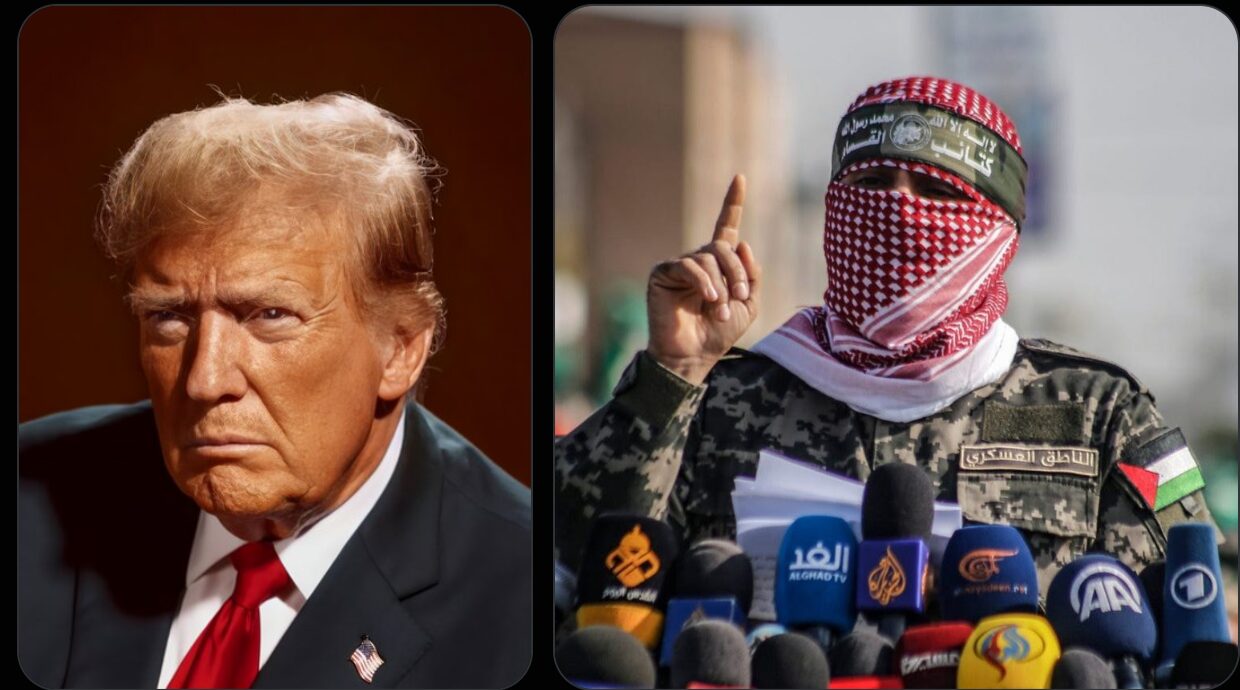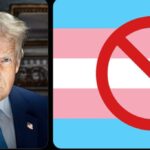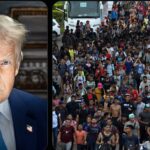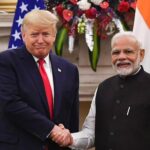TRUMP order permits DEPORTATION of foreign students who express support for HAMAS or HEZBOLLAH
In a controversial move, U.S. President Donald Trump has signed an executive order that allows for the deportation of foreign students who express support for groups such as Hamas or Hezbollah. This order, which tightens the U.S. immigration policies, aims to combat extremism and prevent individuals linked to designated terrorist organizations from residing in the country. The move has sparked debates across political and social spheres, with supporters hailing it as a necessary measure to ensure national security, while critics argue it infringes upon the rights of students and could be used to target certain groups unfairly.
The Context of the Executive Order
Hamas and Hezbollah are both organizations that have been officially designated as terrorist groups by the U.S. government. Hamas, which governs the Gaza Strip, has long been involved in violent conflict with Israel, while Hezbollah, based in Lebanon, has a history of engaging in violent acts against Israeli targets and has supported Iran’s regional influence.
The new order comes as part of President Trump’s broader immigration reform efforts, which include stricter policies on who can enter, stay, and study in the United States. By targeting foreign students who voice support for groups like Hamas and Hezbollah, the administration is taking an aggressive stance against terrorism, particularly in light of ongoing concerns about extremist ideologies influencing vulnerable populations.
Key Provisions of the Executive Order
The Trump administration’s executive order allows U.S. immigration officials to deport foreign students who are found to have openly supported or affiliated with organizations like Hamas or Hezbollah. This applies to both students enrolled in U.S. universities and those who are still in the process of obtaining their student visas.
The criteria for deportation will focus on public expressions of support, including statements made on social media, speeches, and other forms of activism. Those who are found to be affiliated with these groups could face immediate deportation or even be banned from returning to the U.S. in the future.
Critics of the policy have raised concerns about its broad scope, pointing out that it could lead to the punishment of students for simply expressing political opinions, regardless of whether they are directly involved with any terrorist activities. The order does not require individuals to be formally charged with any criminal activity, but rather to be flagged for their public expressions of support for these groups.
Supporters of the Order: National Security First
Supporters of the order argue that it is necessary for protecting national security and preventing the spread of extremist ideologies. The U.S. government has long been concerned with the influence of terrorist organizations and their ability to recruit individuals, particularly young students, who are vulnerable to radicalization. By implementing stricter regulations around foreign students, the Trump administration aims to ensure that individuals who may pose a security threat are not allowed to remain in the country.
This executive order aligns with other measures that the Trump administration has taken to combat terrorism, including travel bans targeting individuals from specific countries with known links to extremist groups and heightened scrutiny on foreign nationals entering the U.S. The argument here is that the U.S. must take all necessary steps to safeguard its borders and prevent individuals from advancing harmful ideologies that could destabilize both domestic and international security.
Critics’ Concerns: Free Speech and Discrimination
On the other hand, critics of the executive order argue that it could lead to unjust deportations and that it violates the principles of free speech and academic freedom. Foreign students, like all individuals, have the right to express their political beliefs, even if those views are controversial or unpopular. By targeting individuals based on their expressions of support for certain groups, opponents say, the order could set a dangerous precedent where political expression is punished, and students are penalized for holding views that differ from those of the current administration.
Furthermore, there are concerns that the policy could disproportionately affect certain ethnic or religious groups. Some believe that students of Middle Eastern or Muslim descent could be more likely to be targeted, even if their political opinions are not directly related to terrorist organizations. The potential for racial profiling and discrimination has led to widespread opposition, with critics arguing that the policy is an overreach of executive power that undermines the rights of foreign nationals in the U.S.
Legal and Constitutional Implications
The executive order’s potential impact on constitutional rights has also raised questions about its legality. Legal experts have pointed out that the U.S. Constitution protects freedom of speech, which includes the right to express political opinions, even those that might be seen as controversial or offensive. While the government does have the authority to deport individuals who are involved in criminal activities or pose a national security threat, the order’s focus on speech and affiliation could be seen as overstepping constitutional protections.
Additionally, there are concerns about the vagueness of the order’s criteria. Defining what constitutes “support” for a terrorist organization is inherently subjective, and this could lead to inconsistent enforcement or abuses of power. Critics argue that the policy could be used to target individuals based on political or ideological grounds, rather than on any concrete evidence of criminal activity or association with terrorist groups.
The Impact on International Students
Foreign students make up a significant portion of the U.S. higher education system, contributing both academically and economically. According to the Institute of International Education, over 1 million international students were enrolled in U.S. universities as of the 2019-2020 academic year. Many of these students come from countries in the Middle East, Asia, and Africa, where political and social climates can be volatile.
The Trump administration’s move to deport students who express support for groups like Hamas or Hezbollah could have a chilling effect on international student populations, particularly for those who feel that their political beliefs may not align with U.S. policies. It could also lead to a decline in foreign student enrollment, as prospective students may be deterred from studying in the U.S. due to fears of facing deportation over their personal beliefs.
Additionally, the policy could strain relationships with U.S. allies, particularly those in the Middle East and other regions where political affiliations with groups like Hamas or Hezbollah are more common. It could also send a message to other countries that the U.S. is no longer as open or welcoming to international students as it once was, which could have long-term consequences for global academic collaboration.
Conclusion: A Divisive Policy with Far-Reaching Consequences
The Trump administration’s executive order permitting the deportation of foreign students who express support for Hamas or Hezbollah is a divisive policy that has ignited fierce debates across political, legal, and academic communities. While supporters argue that the measure is necessary to protect national security, critics contend that it infringes on fundamental rights, such as freedom of speech and academic freedom.
As the U.S. continues to grapple with its stance on immigration, national security, and foreign policy, the long-term effects of this executive order remain to be seen. Will it strengthen the country’s efforts to combat terrorism, or will it undermine its reputation as a beacon of free expression and academic opportunity? Only time will tell, but it is clear that the implications of this decision will be felt not only by foreign students but by the broader international community.TRUMP order permits DEPORTATION of foreign students who express support for HAMAS or HEZBOLLAH

















Post Comment